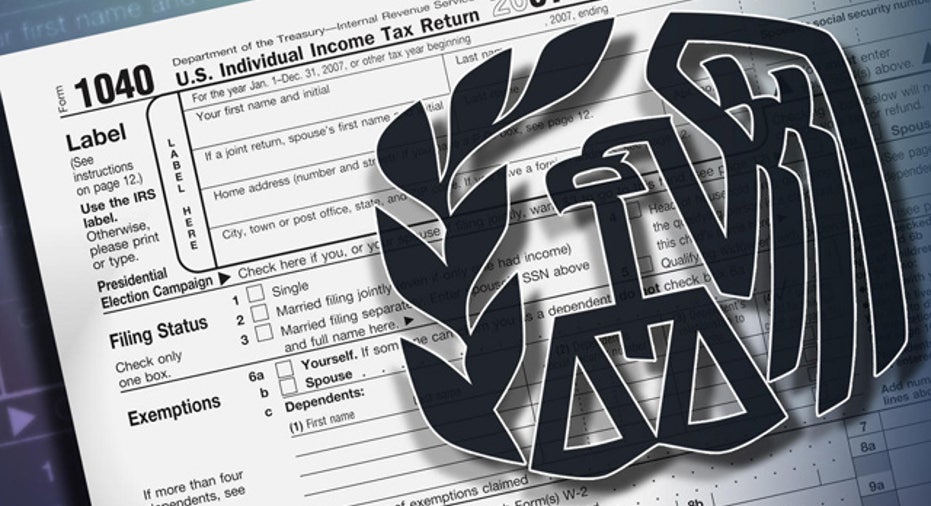The Cost and Tax Implications of Redefining Marriage

The current divorce rate shows that marriage as an institution is collapsing, but recent court decisions are crumbling the definition as well.
A series of decisions by federal courts has thrown the Defense of Marriage Act, or DOMA, into disarray. Most recently, a U.S. District Court in New York State declared the heart of this federal law “unconstitutional.”
In the case of Windsor v. the United States, Edie Windsor, the survivor in a same-sex marriage, sued the IRS claiming she was forced to overpay estate taxes because she was not recognized as the legal spouse of deceased Thea Spyer. The two had been together for 44 years.
Being considered legally married confers significant tax breaks when it comes to estate taxes. “When someone dies, there’s estate tax on everything they own - with exceptions,” says Florida-based attorney Chuck Rubin. “One of the largest [exceptions] says that anything that passes to the surviving spouse, either outright or through a special trust, is not subject to estate tax.”
But according to Rubin, the estate taxes were secondary to the real focus of this case: DOMA’s definition of “marriage.” Section 3 of this 1996 law signed by President Clinton states:
“… the word `marriage' means only a legal union between one man and one woman as husband and wife, and the word `spouse' refers only to a person of the opposite sex who is a husband or a wife.”
Thus, while marriage licenses are issued by states, only unions between a man and a woman are recognized for purposes of federal law. According to the website of the Human Rights Campaign, an organization which describes itself as “working for lesbian, gay, bisexual and transgender equal rights,” DOMA “carves all same-sex couples, regardless of their marital status, out of all federal statutes, regulations, and rulings applicable to all other married people—thereby denying them over 1,100 federal benefits and protections.”
Complicating the issue is the fact that each state has responded in its own fashion to same-sex marriage. Some states recognize the unions as “married” and couples are granted all of the rights and obligations of heterosexual couples. For instance, they’re protected under state inheritance laws, able to create pre- and post-nuptial agreements and can file a state tax return jointly.
Other states have chosen to create a separate designation such as “domestic partner,” which confers some, but not all, of the rights accorded to a union between a man and a woman.
The Constitutional Challenge
Attorneys for Windsor argued that the federal definition of “marriage” violates the equal protection clause of the Constitution. In layman’s language, this clause says that if a law distinguishes between different classes of people- minors vs. adults, for instance- there must be a rational purpose.
In an interesting twist, the federal government declined to defend the law. In order that the government was represented in this constitutional challenge, the court allowed a special bipartisan advisory group made up of members of the House of Representatives to argue on behalf of DOMA’s legality. Among others, the arguments included the desire to protect the institutions of marriage, procreation and child rearing.
The Fiscal Consequences
In addition, the advisory group defended DOMA on grounds of preserving the “public fisc.” As Rubin explains, this refers to “the fiscal welfare of the United States.” That is, the revenues and expenses the government has budgeted for based upon how the current law is written. For instance, when projections are made about expected estate tax revenue or the cost of Social Security benefits, they do not assume that tax deductions or spousal benefits will be afforded to same-sex couples.
The court was not persuaded and ruled that prohibiting same-sex marriages for these purposes was not “rational.”
“This does affect the budget deficit and that the government is spending on benefits and receiving in taxes,” says Rubin. “It’s definitely going to increase budgetary pressures.”
Steps to Take
Windsor v. U.S. is the fourth case in which DOMA’s definition of marriage has been declared unconstitutional. The government has appealed and a new trial is set for September. But it could take years for this issue to be settled.
According to Rubin, same-sex couples should protect themselves by formally getting married. “If you live in a state that doesn’t have a provision for same-sex marriages, you need to find a state that provides full marital rights so there is no question that you are ‘married’ for federal purposes.”
Ms. Buckner is a Retirement and Financial Planning Specialist and an instructor in Franklin Templeton Investments' global Academy. The views expressed in this article are only those of Ms. Buckner or the individual commentator identified therein, and are not necessarily the views of Franklin Templeton Investments, which has not reviewed, and is not responsible for, the content.
If you have a question for Gail Buckner and the Your $ Matters column, send them to: yourmoneymatters@gmail.com, along with your name and phone number.



















